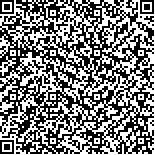| 摘要: |
| 目的 农户作为生态农业技术最直接的采纳者,其对生态农业技术有着独立的选择权,农户是否采纳生态农业技术直接影响到该技术的推广效率。稻虾共养技术实现了水稻种植和小龙虾养殖相协调,该技术符合生态农业技术的要求。因此,文章以稻虾共养技术为例,通过分析江苏省和湖北省稻虾共养技术推广情况,以期提高农户对稻虾共养技术的采纳行为,并重点从政府培训、农户技术认知、农户个体特征、家庭经营特征和社会网络等五方面研究其对农户采纳稻虾共养技术的影响。方法 运用二元Logistic模型和Bootstrap方法,基于江苏省和湖北省共612份农户的微观调研数据,实证分析了政府培训、技术认知对农户稻虾共养技术采纳行为的影响及其内在作用机制。结果 (1)政府培训次数和政府培训有效性对农户稻虾共养技术采纳行为有显著的正向影响,政府培训及时性对农户稻虾共养技术采纳行为的影响效果不显著;(2)其内在作用机制主要体现在,政府培训有效性可以提高农户技术认知水平,降低其技术应用风险,最终促使农户产生技术采纳行为;(3)户主是否村干部、是否加入合作社等对农户采纳稻虾共养技术有显著的正向影响,而户主年龄和耕地块数对其技术采纳行为有显著的负向影响。结论 政府培训能够提高农户对生态农业技术的采纳行为,并且政府通过技术培训,可以提高农户对生态农业技术的认知,进而对农户技术采纳行为产生显著的正向影响。 |
| 关键词: 政府培训 技术认知 农户 生态农业技术 采纳行为 |
| DOI:10.7621/cjarrp.1005-9121.20210523 |
| 分类号:F323.3 |
| 基金项目:中央高校基本科研业务费项目“‘双水双绿’模式经济效应和生态效益评价分析”(2662018YJ019);国家十三五重点研发计划“粮食主产区作物种植模式资源效率与生态经济评价”(2016YFD0300210) |
|
| GOVERNMENT TRAINING, TECHNOLOGY COGNITION AND FARMER ECO-AGRICULTURAL TECHNOLOGY ADOPTION BEHAVIORTAKING RICE AND SHRIMP CO-CULTURE TECHNOLOGY AS AN EXAMPLE |
|
Yang Xingjie1,2, Qi Zhenhong2,3, Chen Xueting1,2, Yang Caiyan1,2
|
|
1.School of Economics and Management, Huazhong Agricultural University, Wuhan 430070, Hubei, China;2.Hubei Rural Development Research Center, Wuhan 430070, Hubei, China;3.Institute of "Shuang shui Shuang lü", Huazhong Agricultural University, Wuhan 430070, Hubei, China
|
| Abstract: |
| As the most direct adopter of ecological agriculture technology, farmers have independent choices for ecological agriculture technology. Whether farmers adopt ecological agriculture technology directly affects the promotion efficiency of this technology. The rice-shrimp co-feeding technology has achieved the coordination of rice planting and crayfish culture, and the technology meets the requirements of ecological agriculture technology. Therefore, this paper takes rice and shrimp co-culture technology as an example to analyze the promotion of rice and shrimp co-culture technology in Jiangsu province and Hubei province, in order to improve farmers' adoption behavior of rice and shrimp co-feeding technology, and focus on government training and farmers' technical awareness. Five aspects of farmer household characteristics, family management characteristics and social network are studied to influence farmers' adoption of rice and shrimp co-culture technology. Based on the micro-research data of 612 rural households in Jiangsu province and Hubei province, the paper empirically analyzed the impact of government training and technical cognition on farmers' rice-shrimp co-culture technology adoption behavior and its internal factors by using the binary logistic model and Bootstrap method. The results were showed as follows. (1) The number of government trainings and the effectiveness of government training had a significant positive impact on farmers' adoption of rice and shrimp co-culture technology. The effect of government training timeliness on farmers' rice-shrimp co-culture technology adoption behavior was not significant. (2) Its internal mechanism was mainly reflected in the fact that the effectiveness of government training could improve farmers' technical cognition level, reduce their application risk, and ultimately encourage farmers to adopt technology adoption behavior. (3) Whether the head of the household was a village cadre, Whether or not to join a cooperative had a significant positive impact on farmers' adoption of rice-shrimp co-culture technology, and the age of the household and the number of cultivated land had a significant negative impact on their technology adoption behavior. In summary, government training can improve farmers' adoption of ecological agriculture technology, and the government can improve farmers' awareness of ecological agriculture technology through technical training, and then have a significant positive impact on farmers' technology adoption behavior. |
| Key words: government training technical cognition farmers ecological agriculture technology adoption behavior |

